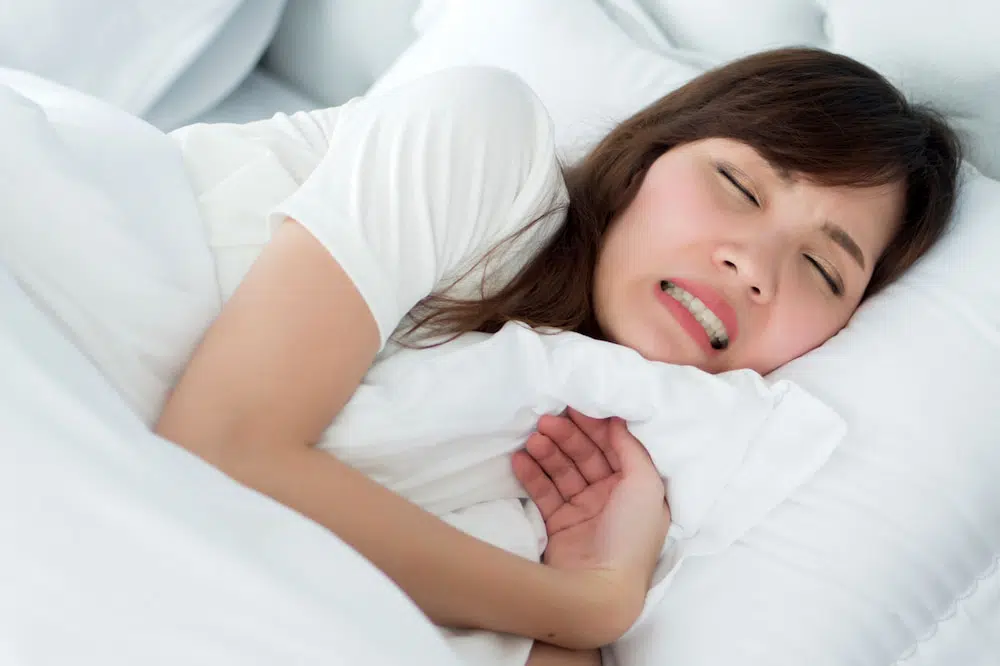
Unmasking The Connection: Sleep Apnea And Teeth Grinding Explored
When we sleep, our bodies are busy. We dream, we rest, and sometimes, we even make noises. But did you know some people grind their teeth or have trouble breathing? It’s true!
Two common sleep problems are sleep apnea and teeth grinding. Some people think they are linked. Are they right? Dive in with us as we explore this connection. You will be surprised by what we find!
Get ready to uncover the mystery of sleep apnea and teeth grinding. It’s a journey you won’t want to miss!
Understanding Sleep Apnea
What Is Sleep Apnea?
Sleep apnea interrupts breathing during sleep. It’s a game of stop-and-go for the lungs. When it happens, the brain slightly wakes to resume breathing. Many experience it without realizing it. It’s a sleep sneak attack that can change the quality of your rest.
Symptoms Of Sleep Apnea
Symptoms? Think loud snoring. Some even stop breathing and then gasp suddenly. Other signs include feeling tired after a whole night’s sleep, facing morning headaches, yawning throughout the day, and often having a dry mouth when waking.
How Sleep Apnea Affects Sleep Quality
Having sleep apnea is like an alarm clock that rings too often. Deep, refreshing sleep is disrupted. It’s like reading a book but constantly losing your place. You’re in bed for hours but wake feeling like you’ve barely rested.
Sleep’s quality drops, even if quantity seems enough.
Teeth Grinding (Bruxism)
What Is Bruxism?
Bruxism is when people grind or clench their teeth. Some do it in their sleep, others during the day. You do not know you’re doing it, but your teeth can tell.
Think of it as giving your teeth a workout, but not the good kind. It’s essential to know about it because it affects our dental health.
Types Of Bruxism
Two types are there. One is awake bruxism: grinding teeth during the day, often when you feel stressed. The other is sleep bruxism: grinding happens while sleeping. Even though you’re resting, your teeth are busy moving around.
Symptoms Of Teeth Grinding
How do you know you grind? Well, sometimes you hear a grinding noise at night. Other times, you wake up, and your jaw feels sore, or you have a headache. If you look closely, teeth can seem worn out or shorter.
And oh! Some find bite marks inside their cheeks.
Causes Of Bruxism
What causes this grinding? Many times, it’s stress making our jaws tight. Some people have sleep problems that make them grind. Also, if teeth are not in a straight line or some are missing, it can cause grinding.
It’s like when something doesn’t fit right, it moves around more.
The Link Between Sleep Apnea And Teeth Grinding
Research On The Connection
Scientists have been curious about the link between sleep apnea and teeth grinding. They’ve done many studies. The results? There’s a clear connection. People with sleep apnea often grind their teeth, too.
This isn’t just a guess but is backed by lots of data.
How Sleep Apnea Can Trigger Bruxism
When someone has sleep apnea, their breathing stops for a bit. This can scare the body. To open up the airway, the body grinds its teeth. Think of it as the body’s way of saying, “Wake up and breathe!”
Impact Of Teeth Grinding On Sleep Apnea
Teeth grinding isn’t just a side effect. It can make sleep apnea worse. Grinding can cause the jaw to change its position. This narrows the airway even more, making it harder to breathe during sleep. It’s a tricky cycle.
Mutual Exacerbation Of Symptoms
The tough part? Sleep apnea and teeth grinding feed off each other. Sleep apnea causes more grinding, which can worsen sleep apnea. It’s like they’re two friends who get into trouble together, making things hard for the sleeper.
Case Studies And Real-life examples
Many people have shared their stories. Like Tom, who found out he had both after a dental visit. His teeth were worn down, and he often felt tired.
Another example is Lisa. She got a sleep study and found out about her sleep apnea. Later, her dentist told her about her teeth grinding. These real stories help us understand better.
Diagnosis And Treatment Options
Diagnosing Sleep Apnea
Finding out if you have sleep apnea starts with a doctor’s visit. They ask about your sleep and if you snore. The real test? A sleep study. You sleep in a special room, and machines check your breathing.
It sounds fancy but helps doctors see what’s up at night.
Diagnosing Bruxism
For teeth grinding, the first clue often comes from the dentist. They see your teeth are worn down or have marks. They’ll ask if your jaw hurts or if you’ve noticed any grinding.
With sleep apnea and teeth grinding being related, knowing about one can lead to checking the other.
Common Treatment Methods
There are many ways to make sleep better. Doctors can suggest ways to keep air moving smoothly for sleep apnea, such as oral medical devices and/or PAP machines, so you breathe better at night.
For teeth grinding, dentists offer a mouth guard. It acts like a protective cover for your teeth while you sleep.
Some people also learn relaxation tricks to help both problems.
Preventing And Managing Sleep Apnea And Bruxism
Lifestyle Modifications
Making small changes at home can help a lot. For starters, sleeping on your side can reduce sleep apnea. Avoiding caffeine before bed helps prevent teeth grinding. Also, cutting back on alcohol and quitting smoking can make a difference for both.
Dental Appliances And Devices
Your dentist is your best friend here. They can offer special mouthguards that prevent grinding. For sleep apnea, some devices move the jaw forward. This helps keep the airway open.
It’s neat how a small device can bring immense relief.
Medications And Therapies
Sometimes, doctors suggest medicine. There are drugs that help with sleep apnea by improving airway muscles. For teeth grinding, stress-relief medication can help. And therapies? Think about things like breathing exercises. They calm the mind and help with sleep.
Coping Strategies For Patients
Living with sleep apnea and teeth grinding is tough. But don’t lose hope! Writing a sleep diary, joining support groups, or talking to others with the same issues can help.
Remember, you’re not alone, and sharing your journey can make things easier.
Long-Term Management And Follow-Up
These issues need regular check-ins. It’s important to see your doctor and dentist often. They’ll check how treatments are working and if anything needs to change. Taking care of sleep apnea and teeth grinding is a team effort.
Together, you’ll find the best way forward.
FAQs
1. How Do You Treat Grinding Teeth With Sleep Apnea?
For sleep apnea and teeth grinding, using a special mouthguard can help. It protects teeth from grinding. Plus, some devices keep the airway open for easier breathing. Always talk to your doctor and dentist for the best advice.
2. Is Teeth Grinding A Sleep Disorder?
Yes, teeth grinding, called bruxism, often happens during sleep. It’s considered a sleep-related movement disorder. People who grind their teeth do not know they’re doing it, but it can affect sleep and dental health.
Conclusion
Sleep and our health go hand in hand. Many of us do not even realize that things like sleep apnea and teeth grinding are linked and affect our rest.
Now, with a better understanding, we can ensure we’re taking care of our sleep and our smiles. Remember, it is more than just a noisy night if you or someone you know snores loudly or wakes up tired.
It is a sign of sleep apnea and teeth grinding. With knowledge comes power; now we have the tools to seek help and enjoy better nights ahead!



